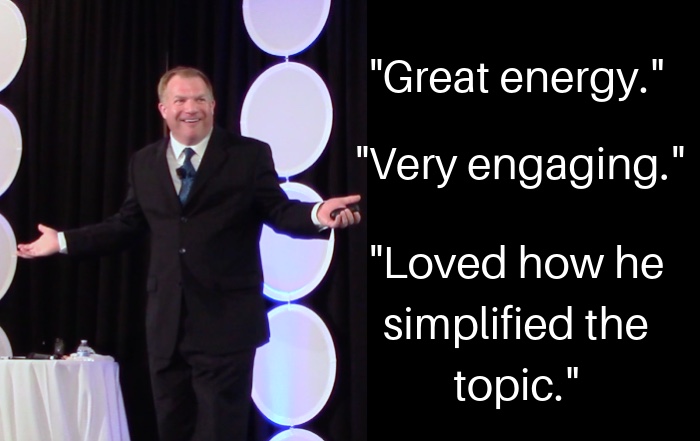 Many organizations fall into the trap of a complicated solution, when trying to solve a problem. While a complicated solution works, it often takes too much time and energy. Over time, its effectiveness may start to diminish.
Many organizations fall into the trap of a complicated solution, when trying to solve a problem. While a complicated solution works, it often takes too much time and energy. Over time, its effectiveness may start to diminish.
Let’s consider a example of how this can happen:
Imagine you’re in a management meeting. During the session, the group sings happy birthday to one of the leaders. At the end of the song, the CEO complains, saying, “I never know about these birthdays. Can we come up with a system that can track employee birthdays?”
A colleague, who must have a strong sense of job security, says, “You mean like a calendar?”
In this scenario, the easiest solution is for the CEO is to consult his work calendar, where employee birthdays are listed.
But you could see a situation where his complaint is interpreted another way. Employees could form committees, come up with elaborate charts and notifications systems for birthdays.
Both processes get you to the same destination but while one involves a new habit, simply checking an existing calendar, the other requires a much higher commitment from staff.
Consider these factors to make sure you’re not embracing a complicated solution:
Can It Be Easily Explained?
How long would it take you to train someone in the existing process? Also, is it possible for them to learn it right away or are multiple training sessions necessary?
Another way to test a process is to explain it to someone and then see if he or she can explain it correctly back to you. Unnecessary complexity often reveals itself during this exchange.
Also, would there be any embarrassment in explaining the solution to someone outside the organization? That tells you something is wrong.
Does Your Complicated Solution Have Many Moving Parts?
If your process for one task involves using five different programs, then maybe it’s too complicated. Is there one program that can perform the five tasks?
A simple software upgrade could save a lot of time. It’s important that employees let their supervisors know of possible upgrades and supervisors ask if they exist. Neither side should assume the status quo will last forever.
Is There an Education Gap?
The person who is asking for the solution may not be an expert in the problem. In our birthday example, the boss didn’t know the solution already existed.
You could imagine a scenario where no one says anything about the calendar and a complicated solution is engineered, simply because the boss asked for it.
The boss would probably prefer that someone, who is an expert, would suggest a simple solution, rather than let time and energy be wasted on a complex idea.
Just because someone is in a higher position in an organization, doesn’t mean he or she is an expert in everything.






